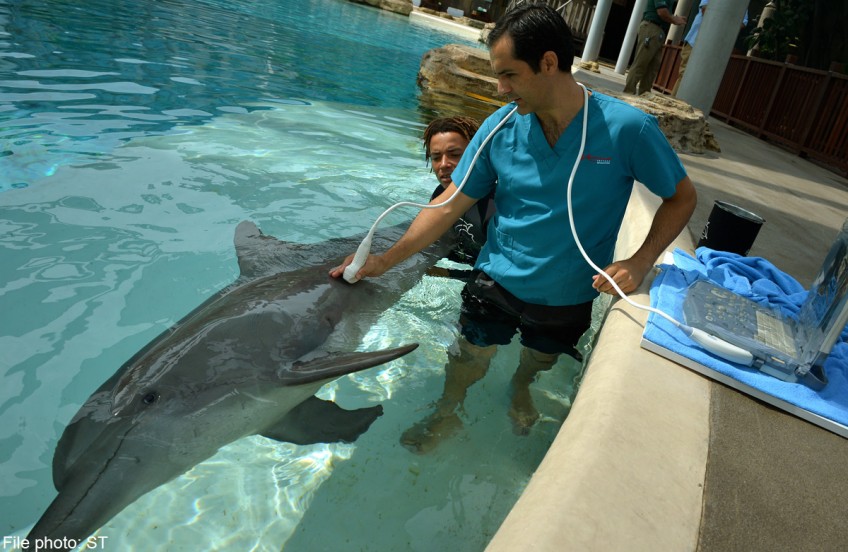Resorts World Sentosa partners US university researchers to analyse mercury levels in dolphins


SINGAPORE - Environmental scientists from John Hopkins University are collaborating with researchers from Dolphin Island at Resorts World Sentosa (RWS) to learn more about how and where mercury accumulates in the bodies of Indo-Pacific bottlenose dolphins, said the partners in a joint statement on Tuesday, Mar 31.
Dolphin Island is home to Indo-Pacific bottlenose dolphins, where guests can interact with the marine mammals up-close and learn about them.
Researchers are analysing blood samples as well as health records from 10 dolphins that have been under the care of Dolphin Island for at least five years. Since arriving at RWS, these dolphins have been fed a diet of fish and squids prepared by the organisation's marine mammal team.
The partnership betwen RWS and the American university came about because aquariums and zoological institutions are uniquely qualified to commence research that involves aquatic animals within their care. This is to ensure their care for these animals will go into protecting and conserving wild populations of similar animals, such as dolphins.
As the marine mammals' blood has been sampled regularly over the years, the researches can analyse and evaluate such samples and look out for any change in mercury levels within the dolphins.
Chief Veterinarian at Resorts World Sentosa Dr Alfonso Lopez said: "We maintain a strict preventative care regime for our marine mammals and blood samples are drawn on a regular basis for health checks, ensuring the animals' well-being."
The principal investigator of this project is Edward Bouwer.
Bouwer, who is also chair of the Department of Geography and Environmental Engineering at Johns Hopkins' Whiting School of Engineering Edward Bouwer said: "The main thing we're trying to determine is how the diet in the controlled environment may influence the health of dolphins, with respect to mercury consumption."
This project is said to be important because health experts are worried about human and animal consumption of mercury, especially in a form called methylmercury.
A key goal of the Johns Hopkins-Resorts World Sentosa joint dolphin study is to share the results in peer-reviewed scholarly publications. Team members are also discussing plans to extend the study to the resort's other key marine attraction, Southeast Asia Aquarium (S.E.A. Aquarium), focusing on mercury levels in other aquatic animals.
Resorts World Sentosa is providing more than US$150,000 (S$206,272) in funding support for the initial 16-month project.
ssandrea@sph.com.sg